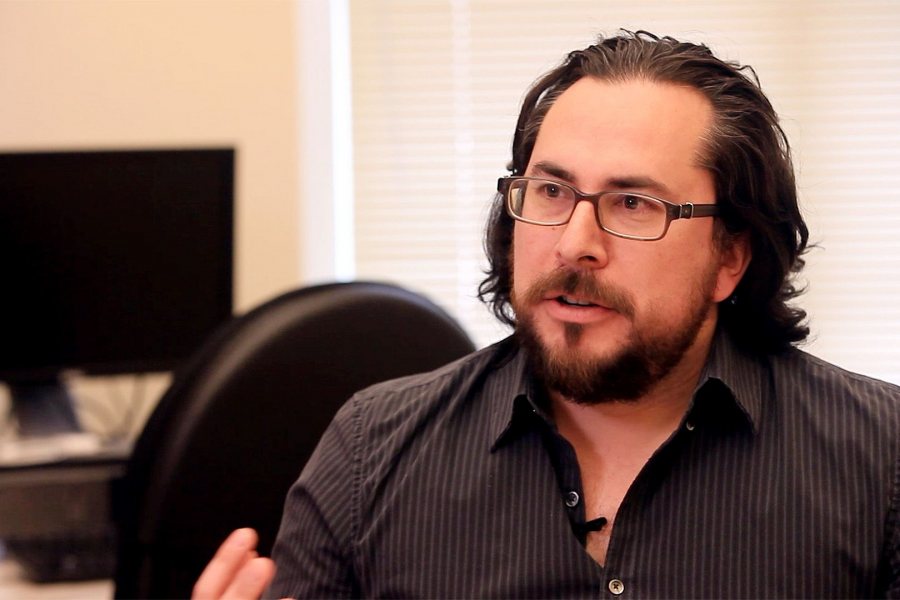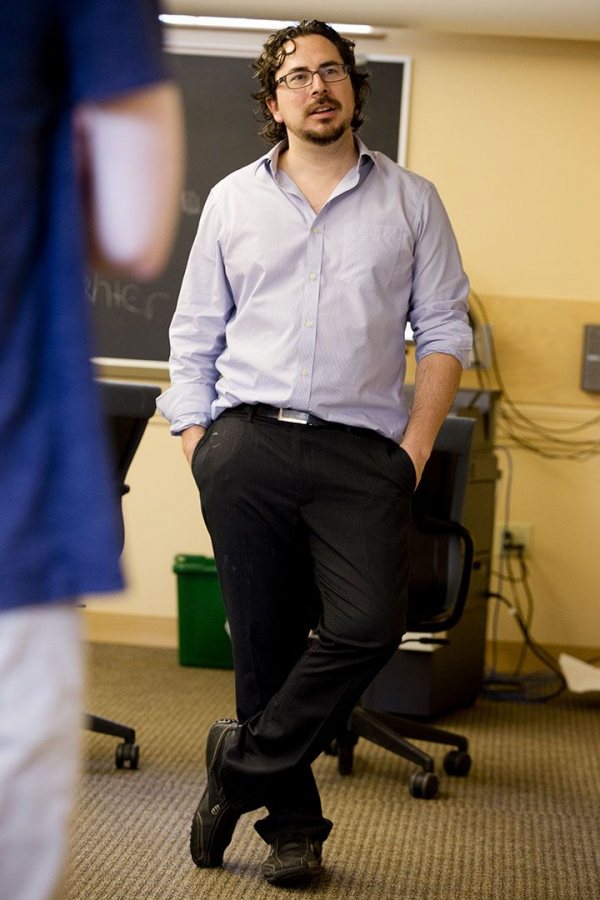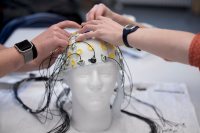
Neuroscientist Jason Castro receives ‘most prestigious’ NSF early career award of $720K

Bates neuroscientist Jason Castro’s early-career award is considered the “NSF’s most prestigious grant for junior faculty scientists,” says Matt Auer, vice president for academic affairs and dean of the faculty at Bates. (Phyllis Graber Jensen/Bates College)
In 2013, Bates neuroscientist Jason Castro was one of a group of researchers whose approach to categorizing odors made international headlines.
Castro’s latest red-letter achievement may not stop presses around the globe, but its impact on Bates students will likely last much longer than the typical newshound’s attention span.
A recent $720,000 award from the National Science Foundation’s Faculty Early Career Development Program will not only support Castro’s research into brain structure but also, in alignment with the college’s new Digital and Computational Studies Program, the creation of new computationally oriented class modules for Bates’ introductory neuroscience course.
“The Faculy Early Career award is the NSF’s most prestigious grant for junior faculty scientists,” says Matt Auer, vice president for academic affairs and dean of the faculty at Bates.
The award, designed to help establish young faculty as leaders in their fields, “increases the probability that the awardees make lasting impacts through their scholarship,” says Auer.
“This makes a pretty powerful case that Bates is a destination for students serious about STEM.”

Typically awarded to faculty at larger research universities, Castro’s early career NSF grant is the first for a Bates faculty member. (Phyllis Graber Jensen/Bates College)
Castro’s is the first Faculty Early Career (aka CAREER) grant awarded to a Bates faculty member. Typically the NSF directs the grants to faculty at large research universities, as opposed to small liberal arts schools like Bates.
“In the comparatively uncommon instances when scientists at liberal arts colleges receive CAREER awards, the funding enables them to pursue ambitious projects that couldn’t be contemplated without substantial external support,” Auer says.
In addition, he adds, considering that Bates STEM faculty are “remarkable instructors who embed their own research directly into student coursework and lab work, this makes a pretty powerful case that Bates is a destination for students serious about STEM.”
Because applications for CAREER grants are evaluated by peers in an applicant’s particular field of study, says Castro, the award is “a vote of confidence from colleagues in your research area, and I’m very honored that my work was recognized in this way.”
Castro’s current research still involves the sense of smell, but more tangentially. He and his students are developing computational techniques for researching the organization of the olfactory bulb of the brain, a region dedicated to processing smells.
Advancing Castro’s efforts toward several goals, the CAREER grant will help support:
- student thesis research related to Castro’s project;
- the hiring of research personnel;
- a redesign of Bates’ introductory neuroscience curriculum to be more practice-based and centered on the use of digital resources — an endeavor that could result in a textbook or lab workbook by Castro;
- and possibly the establishment of a summer brain-research program for high school students in the Lewiston-Auburn region.
“This award testifies to Jason’s particular, remarkable strengths as a neuroscientist who is pursuing vital research questions,” says Dean of the Faculty Auer. “But it also speaks, more broadly, to Bates as an institution that attracts and supports the careers of scientists at Jason’s high level.”



